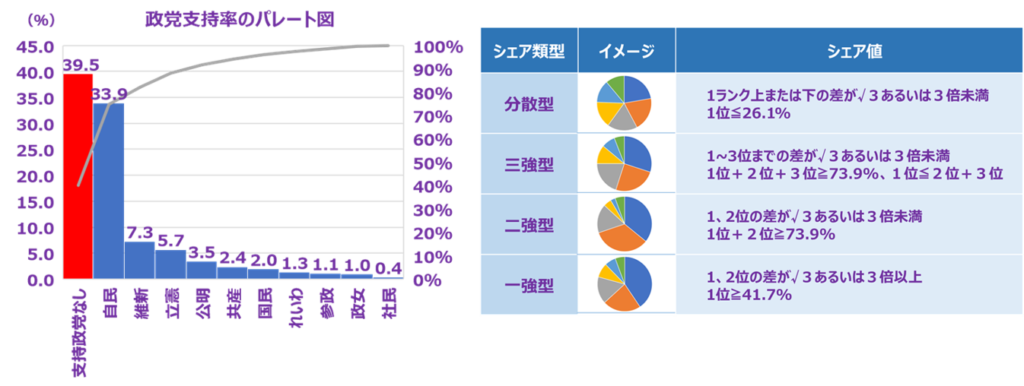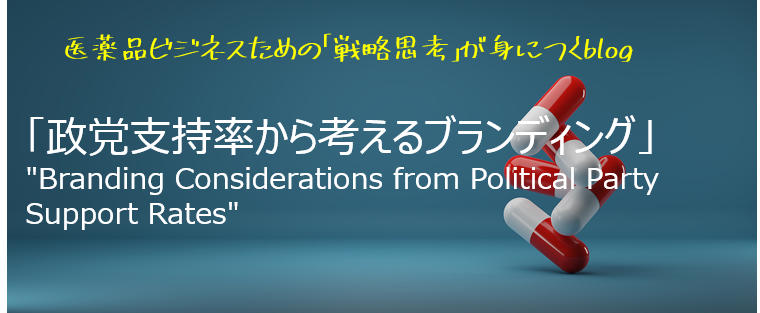
本日も慶応義塾大学、小幡積先生のラジオプログラムからの題材です。
小幡積先生によるとアメリカの二大政党制とは異なり、日本人は政党ではなく個人を選択する傾向が強く、特に今回のような地方選ではその傾向が顕著になるそうです。
確かに、先日投稿させていただいた、「政党支持率に見る野党のニッチ戦略」では、与党である自民党の支持率を超えて、支持政党なしが40割近くを占める第一位です。
このような状況をみると、顧客のロイヤリティや共感性を高めることで、独自の付加価値を創造し、競合他社との差別化を図ることが目的であるブランディング戦略にも変化を迫られるかもしれません。
実際に、最近では有名百貨店にも店舗を構えるユニクロが展開する商品は、誰が見てもユニクロだと分かるものではありません。
ブランドを特定されないブランディング戦略です。
無支持層を把握する方法に「シェア類型」があります。
医薬品ビジネスで言えば、特定の製品に偏らず満遍なく処方する傾向のある医師です。
マトリクス分析を用いればこれらの顧客を定量化および可視化することが出来ます。
“Branding Considerations from Political Party Support Rates”
Today’s topic comes from Professor Obata’s radio program at Keio University as usual.
According to Professor Obata, unlike the two-party system in the United States, Japanese tend to choose individuals over political parties, especially in local elections such as the current one.
Indeed, as seen in the previous post “Opposition’s Niche Strategy as Seen from Political Party Support Rates,” the top choice with almost 40% support is “no particular political party,” surpassing the ruling party, the Liberal Democratic Party.
In such a situation, a branding strategy may need to be reevaluated to create unique value and differentiate from competitors by increasing customer loyalty and empathy.
In fact, Uniqlo, which now has stores in famous department stores, offers products that are not immediately recognizable as Uniqlo.
This is an example of branding strategy that does not rely on being easily identifiable.
One method to understand the unsupportive group is through the “share type” analysis.
In the pharmaceutical industry, this refers to physicians who prescribe a variety of products instead of particular one. Using matrix analysis, these customers can be quantified and visualized.

